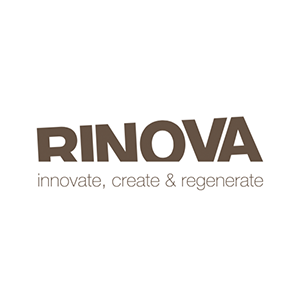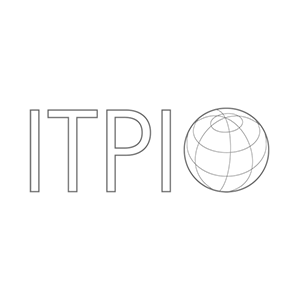iCREATE
Boosting Cultural and Creative Entrepreneurial Mindset of Youth
The creative and cultural sector across Europe evolves and changes fast, so do the skills required of individuals active in the sector. These new dimensions can only be met by provision of relevant sensitive training of the people who are or will be involved in the Cultural and Creative Industry (CCI) which is the main focus of the iCREATE project which involves 6 organisations from Greece, Bulgaria, Spain, Sweden and UK.
iCREATE is an innovative project that addresses the need to empower young people - students (from HEIs, secondary and post-secondary schools), employed in the cultural domain or unemployed, all aspiring to become CCI entrepreneurs who want to start their own business, by developing their skills with a view to increase labour participation and develop better matching between skills and labour market needs.
iCREATE project will create a Tailored Training Framework delivering to young people an integrated package of modern training tools and approaches to develop and enrich their knowledge and CCI-related entrepreneurial skills and competencies and thus will accelerate CCI entrepreneurship from the creation of the business idea and value proposition until the business startup and first steps toward sustainability.Objectives
General objectives
The general objective of iCREATE Project is to foster entrepreneurship education and social entrepreneurship activities among young people in the cultural domain and creative industry through the elaboration and promotion of open and innovative training programmes, materials and e-tools for teaching and learning to enrich their knowledge and boost their entrepreneurship skills and sector-related competences.
Thus, iCREATE will allow cultural heritage to be re-evaluated through both the training on how to realize a CCI-related idea and promote cultural exchange among project partner countries.
This will help both partners and target groups involved to appreciate better the value of European culture and to teach each other the common roots on which can be built more deep awareness of what means to be a European Citizen.
Specific objectives:
- Elaborating open and innovative training programs, materials and e-tools for less time-consuming and cost-effective teaching and learning on how to be a successful entrepreneur and realize their professional ideas concerning CCIs, with emphasis on Cultural Heritage.
- Enriching the competencies of young learners with the development of MOOCs delivered through a virtual learning environment. The target groups will benefit from the knowledge & skills in how to register a company, how to be creative, how to manage the company, what are the different types of startups etc.
- Defining guide and tools to helping target groups in their startups, including social enterprises and career development.
- Adapting the project outcomes to the training for different educational levels of facilitators and learners, aiming at equipping trainees with entrepreneurial competencies in the cultural domain and the right skills for their successful professional realization. In addition, to guarantee the recognition and validation of the training path, it will be designed following the ECVET frames & principles as well as the EntreComp framework.
Intellectual Outputs
Folkuniversitetet (FU) is a national education association which offers a wide range of training courses throughout Sweden and in several European countries. Every year Folkuniversitetet welcomes over 140,000 students to a variety of lectures, short courses or full-time study programs with duration of six months to two years. Nationally, Folkuniversitetet employs around 400 teachers on a full-time basis and a further 7.000 part-time. An administrative staff of around 500 people works with administration and development. Through the cooperation other FU offices in Sweden, FU-Uppsala has national coverage. Folkuniversitetet was registered in 1954 and is nowadays one of the leading organisations in Sweden in education and lifelong learning and offers both formal and nonformal education for youth. FU organise and implement above 67000 hours of formal and non-formal training for various groups per year with a main focus on youth.
FU organizes specific training programs and/or training courses for various disadvantaged target groups such as unemployed, low-skilled, immigrants, refugees, people with physical and mental disabilities, youth drop-outs and NEETS. The organisation is focused on the development of interventions that address social issues for various disadvantaged target groups in order to promote labour market inclusion.

DIMITRA Education & Consulting is a National Initial and Continuing Vocational Education & Training (VET) Organization with Training Centers in five (5) cities in Greece.
Since 1989, DIMITRA holds extensive experience and unique competencies in producing innovative and tools and methodologies for Human Resources development in a constantly changing world of work. Through our activities such as training, consulting, research, innovation transfer and development of international collaborations we work towards the promotion of social inclusion, educational, cultural, scientific and economic growth. More than 3000 people on a yearly basis, of all educational levels, are been trained by DIMITRA in a wide range of study fields. DIMITRA’s permanent staff is approximately 50 employees and the organization also works with more than 500 external trainers.

Center for Education Research and Innovation /CERI/ has been founded by highly qualified specialists from different Bulgarian Universities and research organisations in order to meet the business needs for provision of tailored training offers (formal, non-formal and informal learning) along with the rapidly growing in recent years urgent need to develop and manage innovation as well as their implementation in the activities and processes of small and medium-sized businesses. The Center has established a set of good practices and high business standards which the organisation has always firmly adhered to. For the success of its undertake CERI strongly relies on the excellent performance of its staff who are key experts in the domains such as:
- Development of relevant training programs and courses in specific topics which are delivered to the end users through variety of methods and approached such as blended methodology, pure online courses, on-the-job training and VET offer;
- Providing training for employees in SMEs (micro, small and medium sized enterprises);
- Setting up and provision training for employees in the SEM on the base of modern pedagogical approaches;
- Provision of professional consultancy;
- R&D activities at the department of innovation management methods and instruments for innovation processes which are adjusted and especially adapted to SME requirements.

INFODEF, Institute for the Promotion of Development and Training, is a private and independent centre for Research, Development and Innovation whose mission is to design and carry out projects that contribute to achieve a sustainable and inclusive development through education, culture and innovation.
The centre designs and develops innovative tools, methodologies, products and services that respond to current social and economic challenges and enable to anticipate and drive the changes needed to achieve future goals and objectives in society.
INFODEF supports the modernization of educational systems and the pedagogical innovativeness of public and private educational institutions at national and European levels. Has large expertise developing innovative teaching and learning methodologies, tools and resources and has extensibility work on the definition of (EQF and ECVET based) Training Curriculums and Learning Outcomes, the design of new tools for the identification, assessment and validation of (basic, key, transversal and professional) competencies, the development of innovative ICT-based tools, the design of methodologies to support Work-Based-Learning programmes and practices, new instruments for the recognition and validation of non-formal and informal learning, innovative teaching methods, entrepreneurship education, especial education and the evaluation and quality assessment of educational programmes. One of the main areas of expertise of INFODEF is the design of innovative methodologies and tools to support the activity of the professional that work with specific target groups, such as young people, migrants, low-skilled adults, people with disabilities, offenders and other unprivileged groups.
INFODEF is partner of the cluster AEICE www.aeice.org, a grouping of companies, research & development centres, Universities and Public Administrations that fosters the social and economic development of the territory through collaboration, innovation, internationalisation, training and communication in various fields: Tourism and Cultural Heritage, construction 4.0, manufacturing industry and equipment, building refurbishment, circular economy, ECCN and friendly environments.
INFODEF has participated or coordinated 55 European projects in the field of innovation applied to youth, education and training, funded by the Lifelong Learning, Erasmus+ or Horizon 2020 programmes of the European Commission.

Rinova Ltd is a social enterprise that specialises in the design, development, implementation and evaluation of economic, cultural and social development programmes in the areas of lifelong learning (community and youth development), cultural inclusion, employability and entrepreneurship. As a social enterprise, Rinova is a member of the UK Employee Ownership Association. It is also approved for the Education and Skills Funding Agency Register of Approved Training Organisations, the UK Register of Learning Providers (reg. no. 10035859) and is an approved provider for the National Citizenship Service programme and Greenmark accredited. Rinova directly employs some 30 staff and associate trainers, coaches and advisers, and co-ordinates a Consortium (seewww.rinova.co.uk/rinova-consortium) of London-based youth, learning, skills and enterprise organisations (Further Education Colleges, Local Authorities, NGOs and non-profit organisations, independent and private providers, enterprise agencies) that are supporting young people into employment, education, social action and entrepreneurship.

The Institute for Training of Personnel in International Organizations (ITPIO) is a private non-profit organization – NGO with the status of Association, established in 2010. Members of the Association are 11 NGOs active in the education and youth fields from which 7 Youth associations, 5 leading Bulgarian universities and colleges, the most powerful trade union in Bulgaria, one of the 6 national employers association, 19 local and regional authorities, 7 SMEs, 2 corporations, 3 adult education providers, 7 centres for vocational training, 2 regional educational departments, many schools, school teachers associations and many individuals – prominent experts in the education, training, social, economic and academic spheres.
The main activities of the Institute are related to research activities and analyses, consulting and impact assessment of educational, employment and youth policies and practices on national, regional and local level, elaboration of strategic documents, concerning education, training and youth, organization of trainings, discussion forums aimed at improving the interrelations among national, regional, local authorities and the young people, while following the modern trends in civic society development.
The Institute develops and provides specific tools, measures and services for the human resources development with particular attention toward the social, civic and cultural integration of young people and people from disadvantaged groups into the civil society.

